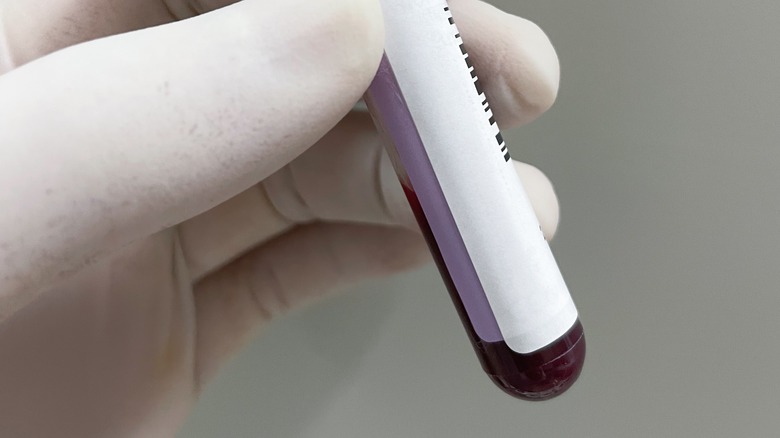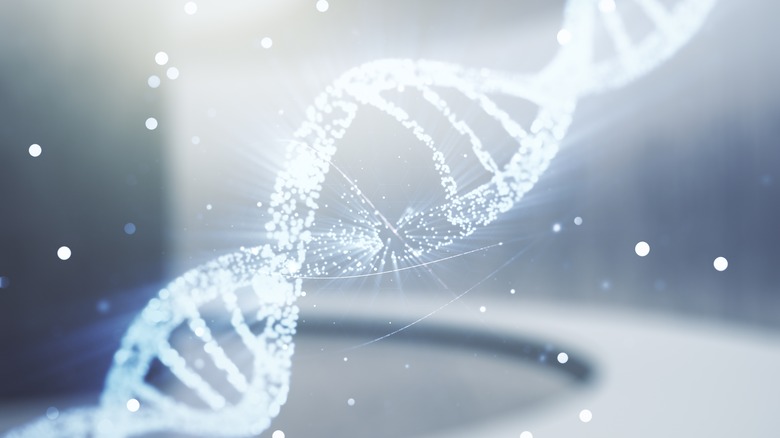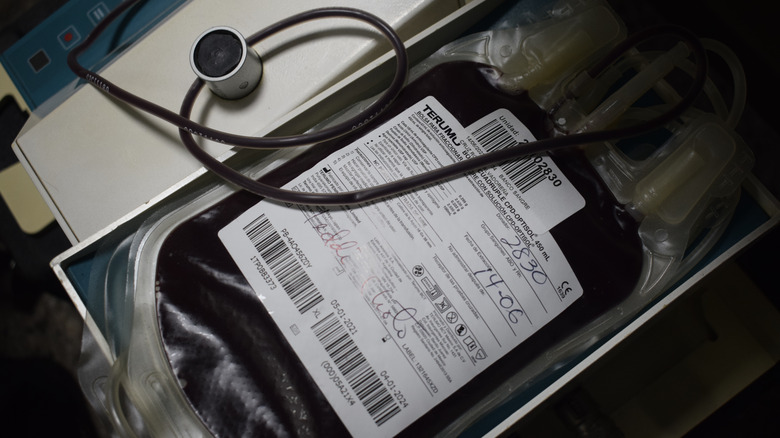Why Golden Blood Is So Valuable
You may know somebody who brags about having the super-rare AB-negative blood type, common to only 1% of human beings (via the NHS). However, some blood is far rarer than this. Golden blood in particular is the rarest blood type on earth, with just 43 recorded cases to date (via Big Think).
There are many more blood types than most people realize, but the blood type system used for determining blood transfusions usually divides blood into just eight groups (via The Science Museum Group). Blood types are determined by the antigens present in your blood (via the Australian Academy of Sciences), with rarer combinations resulting in rarer types.
There are lots of different antigens a person can potentially have, but many people have the A or B antigens, or a combination of the two. Type O blood has neither A nor B antigens and is the most common blood type (via the Red Cross). Together they make up the four common blood type groups: A, B, AB, and O. These four groups are in turn divided into positive and negative, depending on whether or not they have the Rh-D protein. Some people have no Rh antigens at all and fall into a group of their own — the Rh-null or golden blood type.
Who has golden blood?
Golden blood is often caused by an unusual genetic mutation of the RHAG gene (via Medicine Net) and sometimes runs in families (via The Atlantic). The existence of golden blood was once believed to be impossible and doctors thought that anybody with no Rh antigens would not be able to survive (via News 9 Live). In 1961 however, an aboriginal woman from Australia became the first known patient with Rh-null, and since then, people living with Rh-null have been found in various places across the world.
There are only nine known golden blood donors around the globe today (via Discovery). One of them is a woman from Malaysia, who has requested that her identity be kept a secret (via FMT). Another Rh-null patient is known to be from Iran, and she is supposed to have suffered several complications during pregnancy due to her rare blood type (via Medical News Today). A third, a man from Switzerland, was found by accident as a boy after he was admitted to hospital with an infection.
Is golden blood actually a good thing?
Rare Rh-null is undoubtedly special because it is ideal for blood transfusions. The rules that determine what blood a person can receive are fairly complicated, but Rh-null donors can give blood to anyone (via The Science Museum Group). Golden blood has also turned out to be extremely useful in other ways, and it has been used to make significant advances in the creation of immunoglobulin medicines which are used to guard against Rhesus disease.
On the other hand, despite its fancy-sounding nickname, having golden blood can cause more than a few problems, and Rh-null is technically classified as a deficiency (via GARD). Rh-null patients must rely on the vanishingly small number of other Rh-null donors in the event they need a blood transfusion or spare organ. This is because the patient's body is likely to attack any Rh antigens present in the donor blood of a normal patient, causing a violent reaction. Secondly, the presence of the Rh-null mutation is implicated in a host of medical problems. People with golden blood generally also have anemia, and it may make pregnancy more dangerous (via Medicine Net). In short, golden blood is great for everyone but the person who has it.


